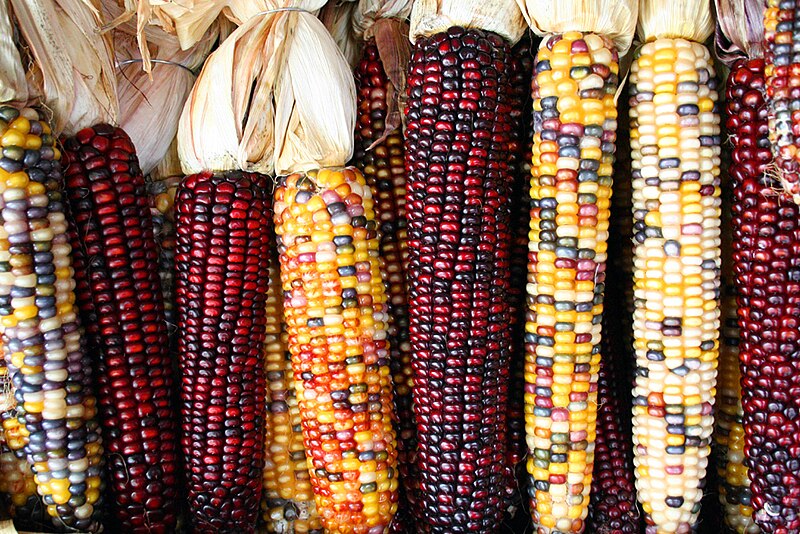 Treehugger has taken two shots at reviewing the excellent book, The Omnivore's Dilemma by Michael Pollan, the first review was hijacked by the discussion of the viability of ethanol as an alternative fuel. Ethanol is not viable alternative if you use oil in the form of fuel, fertilizer and petrochemical herbicides and pesticides to grow the corn or biomass that you ferment. That equation yields ethanol equals oil, which you were running out of in the first place.
Treehugger has taken two shots at reviewing the excellent book, The Omnivore's Dilemma by Michael Pollan, the first review was hijacked by the discussion of the viability of ethanol as an alternative fuel. Ethanol is not viable alternative if you use oil in the form of fuel, fertilizer and petrochemical herbicides and pesticides to grow the corn or biomass that you ferment. That equation yields ethanol equals oil, which you were running out of in the first place.The second shot at a review seemed to finally hit the main point of the book. Pollan divides his topic into several sections. The first is on the industrial food chain, the second on the organic, and the third on the hunter gatherer. While I am still in the middle of reading the book, it seems the main point, which is definitely
 hammered home in the first two sections, is that our food (especially all that is derived from corn) takes plants and animals and lots of OIL (as fuel, fertilizer and petrochemical pesticides, herbicides and pharmaceuticals) to make it, and that a thoughtful approach to eating should consider the sustainability of all of these inputs. The first section about corn and its use in the industrialized nature of processed food is shocking, but not surprising when you think about it.
hammered home in the first two sections, is that our food (especially all that is derived from corn) takes plants and animals and lots of OIL (as fuel, fertilizer and petrochemical pesticides, herbicides and pharmaceuticals) to make it, and that a thoughtful approach to eating should consider the sustainability of all of these inputs. The first section about corn and its use in the industrialized nature of processed food is shocking, but not surprising when you think about it.If possible the organic food chapter is even more disconcerting. There we learn that something seemingly wholesome and natural like organic food can become as soulless and unsustainable as processed food when it is crammed into the current globalized, industrialized food supply chain. There is hope in the example of Polyface Farms, whose sustainable practices seek to improve the land even as they generate food from it.
A great anecdote from the section on organic food describes how Joel Salatin, the owner of Polyface Farms, would not send steak or other samples of the food he produces to the author. Pollan helpfully supplied his own Fed Ex number, thinking that cost or shipping was the issue, but Joel wouldn't send it at all because shipping the food wasn't sustainable, he really practiced what he preached. This may seem like wacko environmentalism, but it really bears examination. Yes, organic vegetables might be better for you and have less impact on the land, but if you fly them in from South America or California (where do you think vegetables come from in the winter?), just how sustainable is this produce then?
The main question to answer when deciding what to eat, is how sustainable is that choice? Can your grandchildren eat the same way someday? Or the entire nation of China? In reading this book I was surprised at how much I didn't know about the food industry and how a simple desire to use up the corn we are growing has such far ranging consequences in energy use, obesity, health issues, sustainability and a host of other areas. It's as if I now can't get the taste of oil out of my mouth. This is not surprising, considering the amount of oil that goes into every bite we eat. The impact of the human animal on this planet is obviously heavy, but glib answers like, "there are too many people and too many cars" do not get to changing behavior and producing solutions to the problem.
The success of the current system is that most people have a high standard of living and it is rising all the time. Now, knowing what we know now, how do we do this sustainably, without asking everyone to give up the gains they have made. Because my rudimentary knowledge of human behavior says that they won't, but they are looking for and might consider standard of living neutral alternatives. Pollan's book at least breaks the news of where our food comes from and that yields some ideas for eating sustainably and thoughtfully, while potentially maintaining or even improving one's standard of living, and that may be the key to their adoption.
I could spend many posts reviewing all of the great nuggets of information and food for thought in this book, as well as produce a few charts and flow diagrams just to get the point across. I may still do this. My recommendation is that you go and read it, and think about the sustainability of the food you eat.
tags: sustainability, environment, food
No comments:
Post a Comment